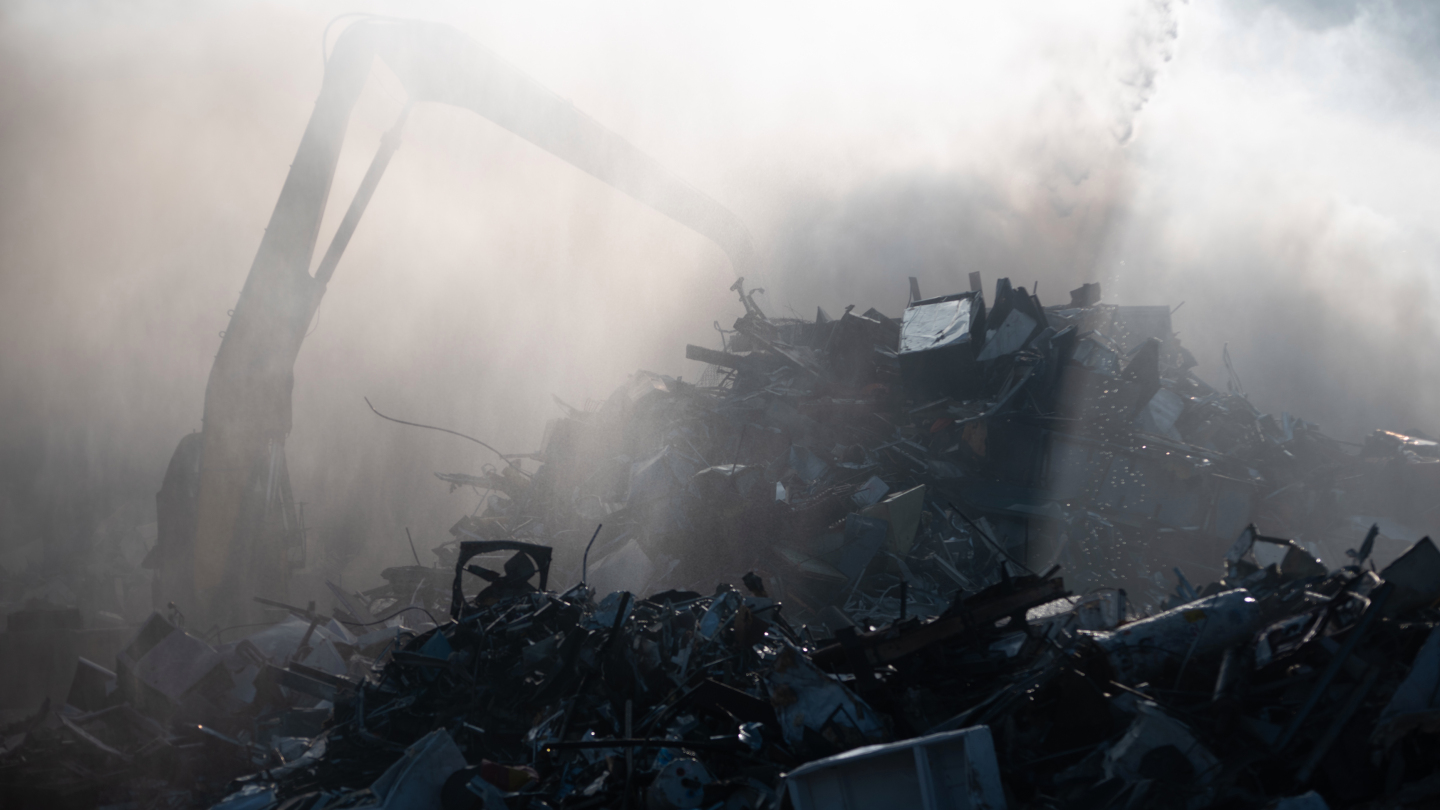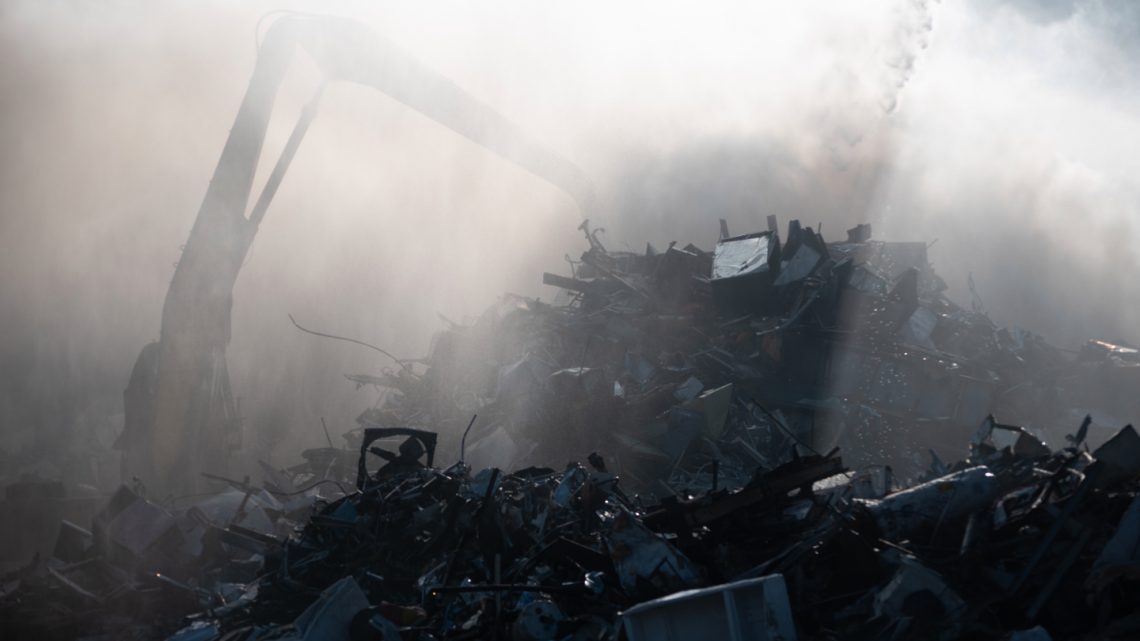
File Photo: Smoke from a fire rises at the General Iron Industries in December 2015. | Colin Boyle/Block Club Chicago
General Iron’s Move To East Side Approved By State Regulators Despite Community Outrage
The permit approval clears a path for General Iron — a metal scrapper with a long history of violations — to move into “an area of environmental justice concern.”
HYDE PARK, WOODLAWN, SOUTH SHOREPRIMARY CATEGORY IN WHICH BLOG POST IS PUBLISHED
EAST SIDE — Despite community outrage, the Illinois Environmental Protection Agency approved permits for General Iron’s planned move to the East Side neighborhood Thursday, clearing a major hurdle for the controversial metal scrapper.
According to an IEPA spokesperson, the permit conditions include:
- Limitations on emissions and hours of operation
- “Extensive” initial and follow-up emissions testing
- Installation and operation of emissions monitoring devices
- Development and implementation of an operation and maintenance plan
- Requirements to prevent explosions in the pollution-limiting equipment that was the site of explosions last month at General Iron’s Lincoln Park facility

Before the company can begin operating at 11600 S. Burley Ave., it must also receive city permits, including one relating to the city’s new rules for large recycling facilities released earlier this month.
Reserve Management Group, which owns General Iron, promised city officials to leave the North Side by the end of the year. The company plans to share the East Side location with an existing RMG-owned recycling facility.
“Numerous comments opposing the permit were wildly false and lacked either a factual basis or scientific evidence,” RMG spokesperson Randall Samborn said in a statement. “We are looking forward to commencing operations in early 2021 with the most technologically advanced facility available and bringing jobs and commerce to the Southeast Side, where RMG has operated and provided community support for nearly three decades.”
The Burley Avenue site lies within “an area of environmental justice concern” for state environmental regulators. It’s less than a half-mile from Rowan Park, and about two-thirds of a mile from George Washington elementary and high schools.
The scrapper’s current home at 1909 N. Clifton Ave. neighbors the site of the $6 billion Lincoln Yards megadevelopment.
U.S. senators, aldermen, activists and neighbors voiced concerns with the scrapper’s plans during a public comment period that ended June 15, citing its history of environmental violations on the North Side.
Illinois EPA officials repeatedly said they could not consider General Iron’s past violations during the permit review process. Environmental groups rejected this claim, citing state law that says permit conditions may be “specifically related to the applicant’s past compliance history.”
IEPA officials also said they couldn’t deny a permit over neighbors’ overwhelmingly negative feedback, nor the city’s indefinite shutdown of General Iron after explosions at the Lincoln Park site in May.
The Environmental Protection Act “needs to be modernized” to allow for consideration of an area’s existing pollution burden, Gov. JB Pritzker’s office said in a statement.
“This administration agrees with advocates that there is a broader regulatory problem that most severely impacts the health and safety of low-income communities — especially those of color,” spokesperson Jordan Abudayyeh said.
“The administration will work toward a legislative proposal on this issue, and while no such proposals have yet come from the statewide or national advocates in this issue area, we look forward to working … on ways to strengthen environmental protection.”
With the state’s approval, East Side environmental activists called on city officials to block the move.
“We’re sick of having to put our lives on hold in order to fight back against a dangerous polluter because the state and city refuse to do their jobs,” Olga Bautista, co-founder of the Southeast Side Coalition to Ban Petcoke, said in a statement. “Now that the state has rubber-stamped this permit, we need the city to step up and prevent this threat from coming to a vulnerable community.”
The state’s approval of another polluter’s move to the East Side is typical of the “environmental racism” committed against neighbors, Southeast Side resident Gina Ramirez said.
The East Side is 80 percent Hispanic and is already home to a heavy concentration of industry.
In recent years, environmental activists have organized against plans to expand a federal waste facility and won stricter regulations to prevent dust from coal and petroleum coke storage sites from coating the neighborhood.
In 2019, the federal EPA cleaned up soil with high levels of brain-damaging manganese near S.H. Bell’s facility on Avenue O.
“I want my son to be healthy, and live in a healthy environment like other children in the city,” Ramirez said. “Lincoln Park neighbors have been fighting this facility for years. If it is not good enough for that neighborhood, why is it good for the Southeast Side?”
Subscribe to Block Club Chicago. Every dime we make funds reporting from Chicago’s neighborhoods.
Already subscribe? Click here to support Block Club with a tax-deductible donation.







